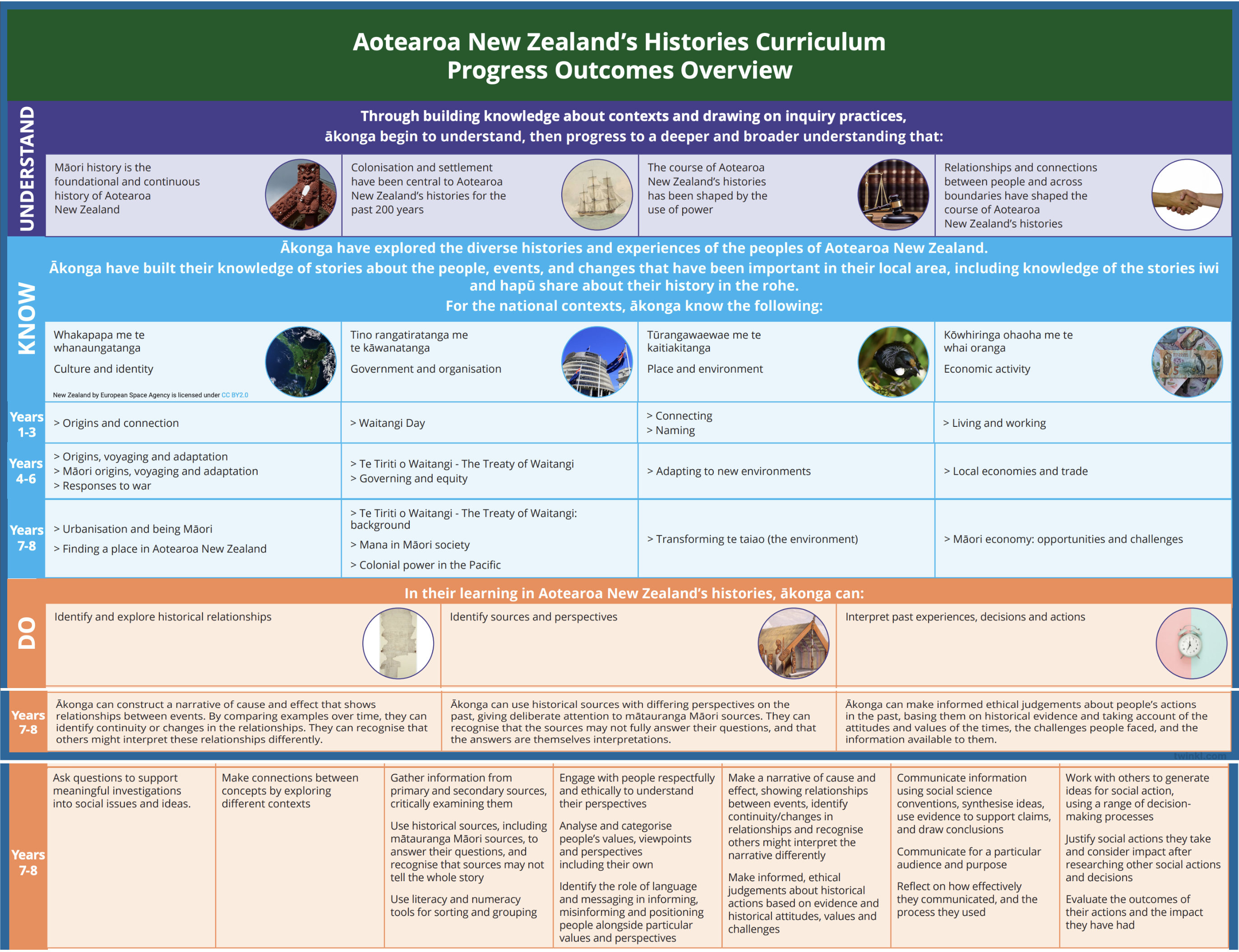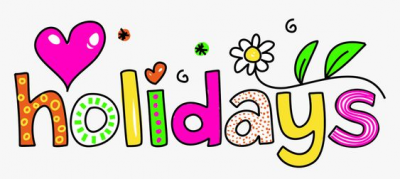8F1 Global Studies
Section outline
-
Kia ora, welcome to your Global Studies 2024 Course Page!
Ko Mrs Chamberlin toku ingoa. I will be your Global Studies teacher this year.
You can email me schamberlin@mhjc.school.nz or visit me in my class F6.
Please check MHO regularly for activities and planning. Your assessments will be linked here, at the top of the MHO page.
For Global Studies this year you will need:
- Device and a lined exercise book
- Pens, glue, ruler, colouring-in pencils and a highlighter
You need to get these ready when you are waiting in a line outside F6.
Once invited in, you need to put your bag in the bag cupboard. You then need to read and record the Date, Learning Intentions, Success Criteria & 'Do Now' activity in your exercise book.
This will be our routine and I expect not to ask you to do this, but for you to manage yourself to action this at the start of every session. 😃👍

- Device and a lined exercise book
-
EXPLORE / TŪHURA learning intentions:
Kei teo ako mātou ki: WALT...
Impact of Māori on Te Taiao (Place and Environment):- We are EXPLORING/FOCUSING on Tīkapa Moana o Hauraki by investigating the natural New Zealand environment before human settlement.
- We are EXPLORING/FOCUSING on Tīkapa Moana o Hauraki by identifying how early Māori settlers changed the environment.
- We are EXPLORING/FOCUSING on 'Te Hawere-a-Maki' [Goat Island] marine reserve by recognising Māori concepts of whakapapa, manaakitanga, mauri, & kaitiakitanga.
- We are EXPLORING/FOCUSING on 'Te Hawere-a-Maki' [Goat Island] by researching the Māori custodianship for the environment.
- We are EXPLORING Aotearoa/New Zealand geography by identifying marine and nature reserves [eg. Goat Island & Tiritiri Matangi Island] in New Zealand.
- We are LOCATING/DISPLAYING Aotearoa/New Zealand's geography by selecting and applying mapping techniques.
Kia ora! This week Miss Steel will be supporting your introduction to Global Studies '24 and your exciting Term One learning context!
Context: 'Kaitiakitanga' - Preservation, Conservation & Protection!
Paearu Angitu: (Success Criteria): I can...
MHJC Values: Awhinatanga/Compassion: Positive partnerships
Hei Mahi (Activities):
- Session 1: Welcome to Global Studies '24! 'Do Now:' Classroom learning routines (Miss Steel's slideshow Pg's 1 to 11).
- Register to join 8F1's Google Classroom page: dhxtwgy
Do Now: 'Current Events Quiz'.
- Yesterday's Waitangi Day public holiday commemorated the signing of 'Te Tiriti o Waitangi' the Treaty of Waitangi. On Google Classroom, view the 5-minute video "Let Me Explain: Te Tiriti o Waitangi." Class discussion, 'Why is the Treaty a controversial document?' Class discussion re: Who are the different stakeholders here?
- Session 2: Do Now: '4-Minute Visual History' video (discussion).
- Read the school journal pdf 'Te Tiriti o Waitangi' and complete the fishbone research task - refer to Google Classroom. Please use a ruler to draw and complete the fishbone graphic organiser on a whole page of your Global Studies exercise book. Miss Steel will inform you whether reading is a shared whole class task, buddy or individual activity (the audio file is also on Google Classroom). Please include the keywords: 'Kaitiakitanga' under 'Before Te Tiriti' and 'Kāwanatanga' + 'Sovereignty' under the '3 Articles of Te Tiriti' note-taking headings.
Here is the link to the current events article...
• . (Highly Contentious)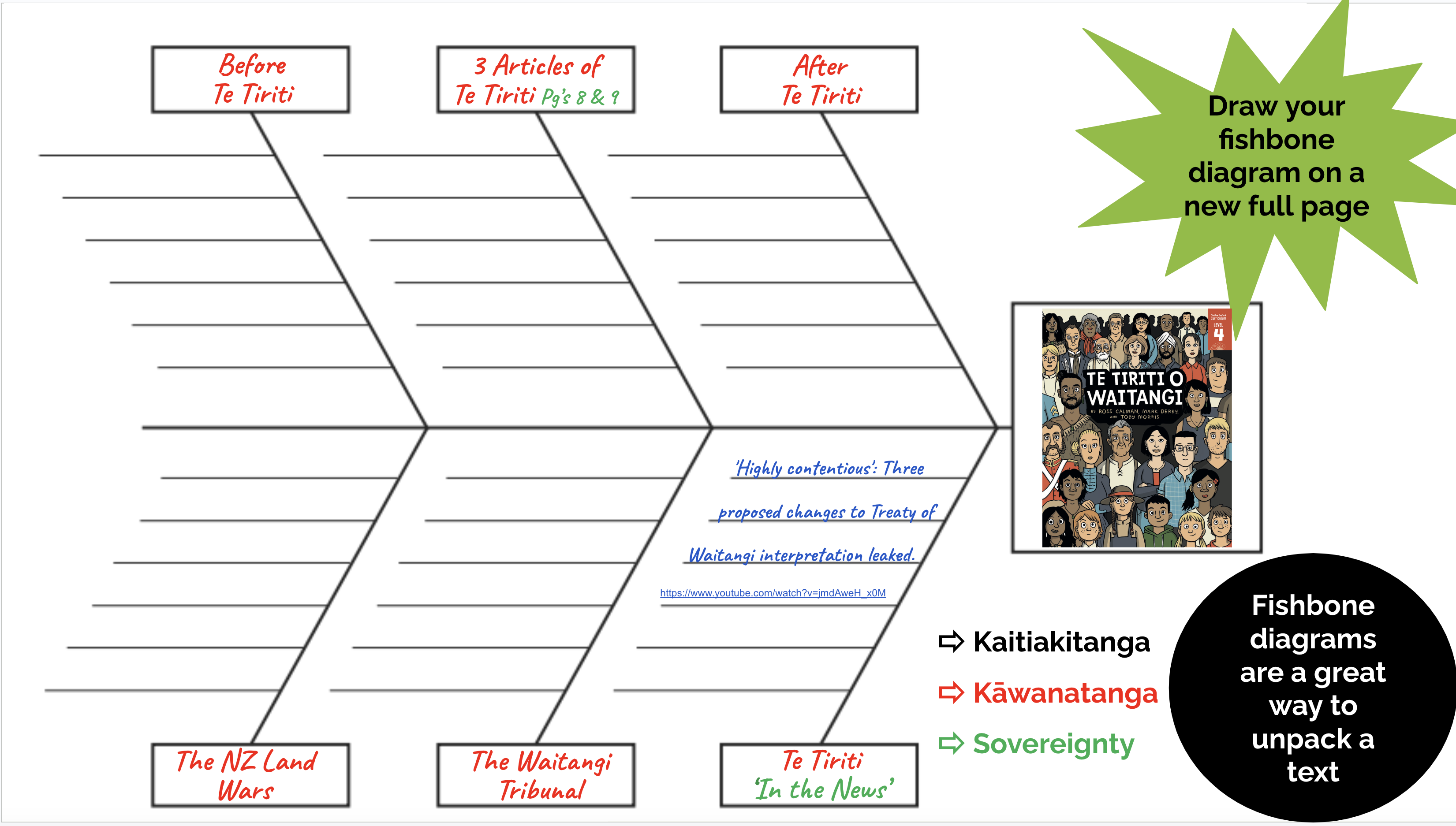
- Session 3: 'Do Now: '3-Minute Visual History' video of the voyages of Te Tiriti o Waitangi (discussion).
- 'Kahoot 'Treaty of Waitangi' by Whaea Katarena. Insert link here...
- Discussion map splintered research activity - write your name in one square on the whiteboard. Be ready to share your brief answer from your exercise book orally with the class.
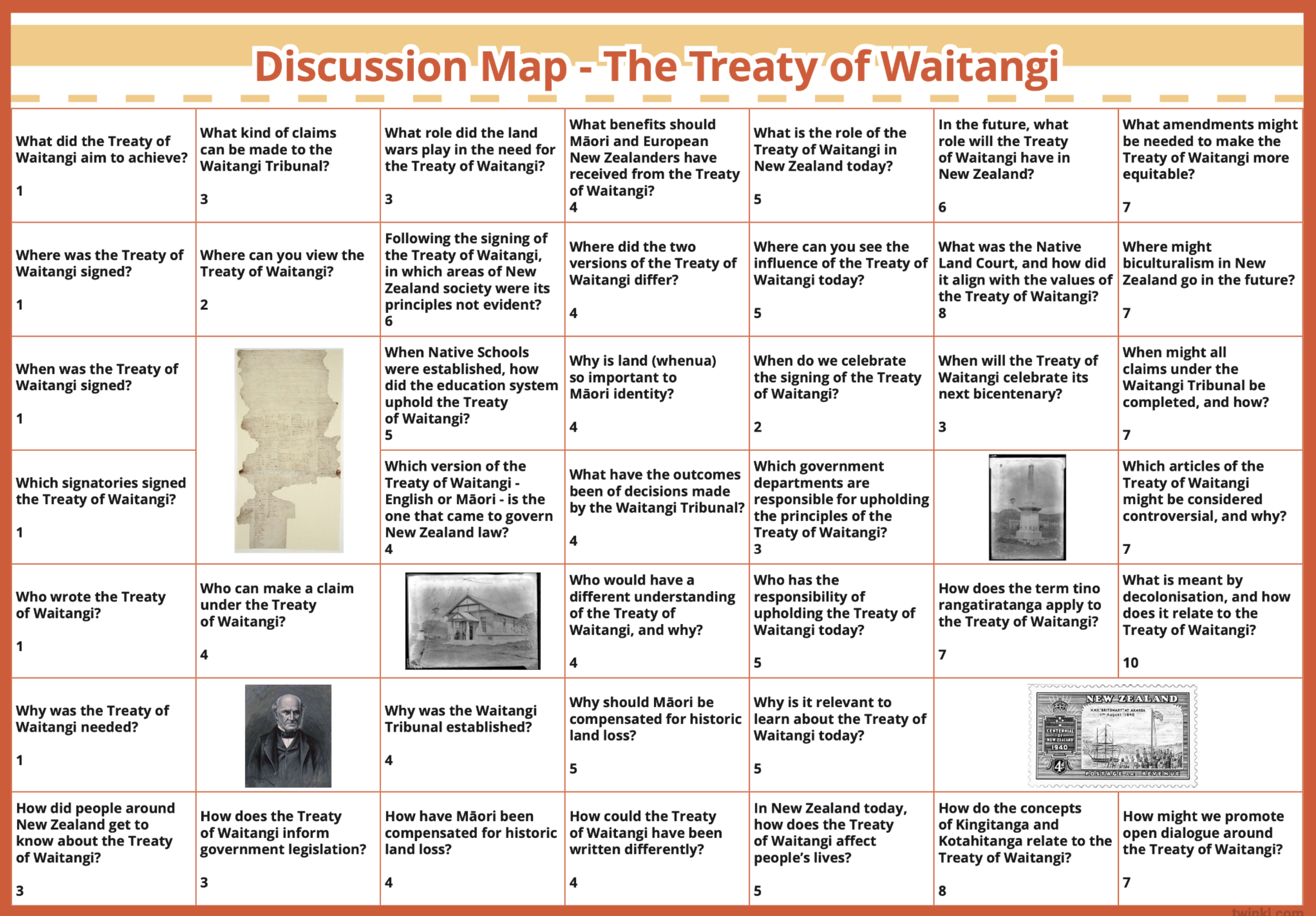
- Fast finishers, using the information presented in the School journal, 'Te Tiriti o Waitangi' pdf and the most current Treaty developments in the media, construct a 'Te Tiriti o Waitangi' timeline on Canva.

Mahi Kāinga (Homework/Further Learning):
Please continue working on your 'Te Tiriti o Waitangi' timeline on Canva for homework this week. Export your completed timeline as a pdf and submit onto Google Classroom for marking by Friday of Week 3.
-
EXPLORE / TŪHURA learning intentions:
Kei teo ako mātou ki: WALT...
Impact of Māori on Te Taiao (Place and Environment):- We are EXPLORING/FOCUSING on Tīkapa Moana o Hauraki by investigating the natural New Zealand environment before human settlement.
- We are EXPLORING/FOCUSING on Tīkapa Moana o Hauraki by identifying how early Māori settlers changed the environment.
- We are EXPLORING/FOCUSING on 'Te Hawere-a-Maki' [Goat Island] marine reserve by recognising Māori concepts of whakapapa, manaakitanga, mauri, & kaitiakitanga.
- We are EXPLORING/FOCUSING on 'Te Hawere-a-Maki' [Goat Island] by researching the Māori custodianship for the environment.
- We are EXPLORING Aotearoa/New Zealand geography by identifying marine and nature reserves [eg. Goat Island & Tiritiri Matangi Island] in New Zealand.
- We are LOCATING/DISPLAYING Aotearoa/New Zealand's geography by selecting and applying mapping techniques.
Kia ora! This week Miss Steel will be supporting your introduction to Global Studies '24 and your exciting Term One learning context!
Context: 'Kaitiakitanga' - Preservation, Conservation & Protection!
Paearu Angitu (Success Criteria): I can...
MHJC Values: Awhinatanga/Compassion: Positive partnerships
Hei Mahi (Activities):
- Session 1: Do Now: 'Current Events Quiz'.
- Using the information presented in the School journal, 'Te Tiriti o Waitangi' pdf and the most current Treaty developments in the media, construct a 'Te Tiriti o Waitangi' timeline on Canva.

- Session 2: Do Now: Cape Rodney Mapping task

- Goat Island Research Challenge - Google Classroom

- Session 3: Do Now: FACKTS Mapping task
- Goat Island Research Challenge, Continued - Google Classroom
Mahi Kāinga (Homework/Further Learning):
Please continue working on your 'Te Tiriti o Waitangi' timeline on Canva for homework this week. Export your completed timeline as a pdf and submit onto Google Classroom for marking by Friday of Week 3.
-
EXPLORE / TŪHURA learning intentions:
Kei teo ako mātou ki: WALT...
Impact of Māori on Te Taiao (Place and Environment):- We are EXPLORING/FOCUSING on Tīkapa Moana o Hauraki by investigating the natural New Zealand environment before human settlement.
- We are EXPLORING/FOCUSING on Tīkapa Moana o Hauraki by identifying how early Māori settlers changed the environment.
- We are EXPLORING/FOCUSING on 'Te Hawere-a-Maki' [Goat Island] marine reserve by recognising Māori concepts of whakapapa, manaakitanga, mauri, & kaitiakitanga.
- We are EXPLORING/FOCUSING on 'Te Hawere-a-Maki' [Goat Island] by researching the Māori custodianship for the environment.
- We are EXPLORING Aotearoa/New Zealand geography by identifying marine and nature reserves [eg. Goat Island & Tiritiri Matangi Island] in New Zealand.
- We are LOCATING/DISPLAYING Aotearoa/New Zealand's geography by selecting and applying mapping techniques.
Context: 'Kaitiakitanga' - Preservation, Conservation & Protection!
Paearu Angitu (Success Criteria): I can...
MHJC Values: Awhinatanga/Compassion: Positive partnerships
Hei Mahi (Activities):
- Mapping activities - compass directions and grid references
- Goat Island Trip!
-
EXPLORE / TŪHURA learning intentions:
Kei teo ako mātou ki: WALT...
Impact of Māori on Te Taiao (Place and Environment):- We are EXPLORING/FOCUSING on Tīkapa Moana o Hauraki by investigating the natural New Zealand environment before human settlement.
- We are EXPLORING/FOCUSING on Tīkapa Moana o Hauraki by identifying how early Māori settlers changed the environment.
- We are EXPLORING/FOCUSING on 'Te Hawere-a-Maki' [Goat Island] marine reserve by recognising Māori concepts of whakapapa, manaakitanga, mauri, & kaitiakitanga.
- We are EXPLORING/FOCUSING on 'Te Hawere-a-Maki' [Goat Island] by researching the Māori custodianship for the environment.
- We are EXPLORING Aotearoa/New Zealand geography by identifying marine and nature reserves [eg. Goat Island & Tiritiri Matangi Island] in New Zealand.
- We are LOCATING/DISPLAYING Aotearoa/New Zealand's geography by selecting and applying mapping techniques.
Context: 'Kaitiakitanga' - Preservation, Conservation & Protection!
Paearu Angitu (Success Criteria): I can...
MHJC Values: Awhinatanga/Compassion: Positive partnerships
Hei Mahi (Activities):
- Weekly Quiz!
- Keywords chart
-
FOCUS / ARONGA learning intentions:
- We are FOCUSING on Aotearoa history by describing the natural New Zealand environment before human settlement
- We are FOCUSING on Aotearoa’s history by identifying how early Māori settlers changed the environment
- We are FOCUSING on Aotearoa’s history by explaining Māori concepts of whakapapa, manaakitanga, mauri, & kaitiakitanga and the importance of the environment within Te Ao Māori (the Māori world view)
- We are FOCUSING on Aotearoa’s history by discussing the Māori custodianship for the environment
- We are FOCUSING on Aotearoa’s history by defining the meaning and significance of Aotearoa’s place name
- We are FOCUSING on Aotearoa’s history by clarifying how Māori valued and used native plants and animals
Success Criteria

Activities:
- Education Perfect - Māori me te Tāiao - Modifications
- Continue working on the keywords chart
- SEXY paragraph writing
- Weekly Quiz!
-
FOCUS / ARONGA learning intentions:
- We are FOCUSING on Aotearoa history by describing the natural New Zealand environment before human settlement
- We are FOCUSING on Aotearoa’s history by identifying how early Māori settlers changed the environment
- We are FOCUSING on Aotearoa’s history by explaining Māori concepts of whakapapa, manaakitanga, mauri, & kaitiakitanga and the importance of the environment within Te Ao Māori (the Māori world view)
- We are FOCUSING on Aotearoa’s history by discussing the Māori custodianship for the environment
- We are FOCUSING on Aotearoa’s history by defining the meaning and significance of Aotearoa’s place name
- We are FOCUSING on Aotearoa’s history by clarifying how Māori valued and used native plants and animals
Success Criteria

Activities:
- SEXY paragraph writing
- Early life in Aotearoa worksheet
- Weekly quiz!
-
FOCUS / ARONGA learning intentions:
- We are FOCUSING on Aotearoa history by describing the natural New Zealand environment before human settlement
- We are FOCUSING on Aotearoa’s history by identifying how early Māori settlers changed the environment
- We are FOCUSING on Aotearoa’s history by explaining Māori concepts of whakapapa, manaakitanga, mauri, & kaitiakitanga and the importance of the environment within Te Ao Māori (the Māori world view)
- We are FOCUSING on Aotearoa’s history by discussing the Māori custodianship for the environment
- We are FOCUSING on Aotearoa’s history by defining the meaning and significance of Aotearoa’s place name
- We are FOCUSING on Aotearoa’s history by clarifying how Māori valued and used native plants and animals
Success Criteria

Activities:
- Education Perfect - Māori me te Taiao
- Aotearoa history show - watch and take notes
- Weekly quiz!
- Resource exploration and note taking
-
FOCUS / ARONGA learning intentions:
- We are FOCUSING on Aotearoa history by describing the natural New Zealand environment before human settlement
- We are FOCUSING on Aotearoa’s history by identifying how early Māori settlers changed the environment
- We are FOCUSING on Aotearoa’s history by explaining Māori concepts of whakapapa, manaakitanga, mauri, & kaitiakitanga and the importance of the environment within Te Ao Māori (the Māori world view)
- We are FOCUSING on Aotearoa’s history by discussing the Māori custodianship for the environment
- We are FOCUSING on Aotearoa’s history by defining the meaning and significance of Aotearoa’s place name
- We are FOCUSING on Aotearoa’s history by clarifying how Māori valued and used native plants and animals
Success Criteria

Activities:
- Kaitiakitanga brochure - see Google Classroom
- Weekly quiz
-
FOCUS / ARONGA learning intentions:
- We are FOCUSING on Aotearoa history by describing the natural New Zealand environment before human settlement
- We are FOCUSING on Aotearoa’s history by identifying how early Māori settlers changed the environment
- We are FOCUSING on Aotearoa’s history by explaining Māori concepts of whakapapa, manaakitanga, mauri, & kaitiakitanga and the importance of the environment within Te Ao Māori (the Māori world view)
- We are FOCUSING on Aotearoa’s history by discussing the Māori custodianship for the environment
- We are FOCUSING on Aotearoa’s history by defining the meaning and significance of Aotearoa’s place name
- We are FOCUSING on Aotearoa’s history by clarifying how Māori valued and used native plants and animals
Success Criteria

Activities:
- Continue working on the Kaitiakitanga brochures - Due Friday!
- Weekly quiz!
-
FOCUS / ARONGA learning intentions:
- We are FOCUSING on Aotearoa history by describing the natural New Zealand environment before human settlement
- We are FOCUSING on Aotearoa’s history by identifying how early Māori settlers changed the environment
- We are FOCUSING on Aotearoa’s history by explaining Māori concepts of whakapapa, manaakitanga, mauri, & kaitiakitanga and the importance of the environment within Te Ao Māori (the Māori world view)
- We are FOCUSING on Aotearoa’s history by discussing the Māori custodianship for the environment
- We are FOCUSING on Aotearoa’s history by defining the meaning and significance of Aotearoa’s place name
- We are FOCUSING on Aotearoa’s history by clarifying how Māori valued and used native plants and animals
Success Criteria

Activities:
- School journal reading
- School journal questions
- Weekly Quiz
- The Great Pacific Garbage Patch worksheet
-
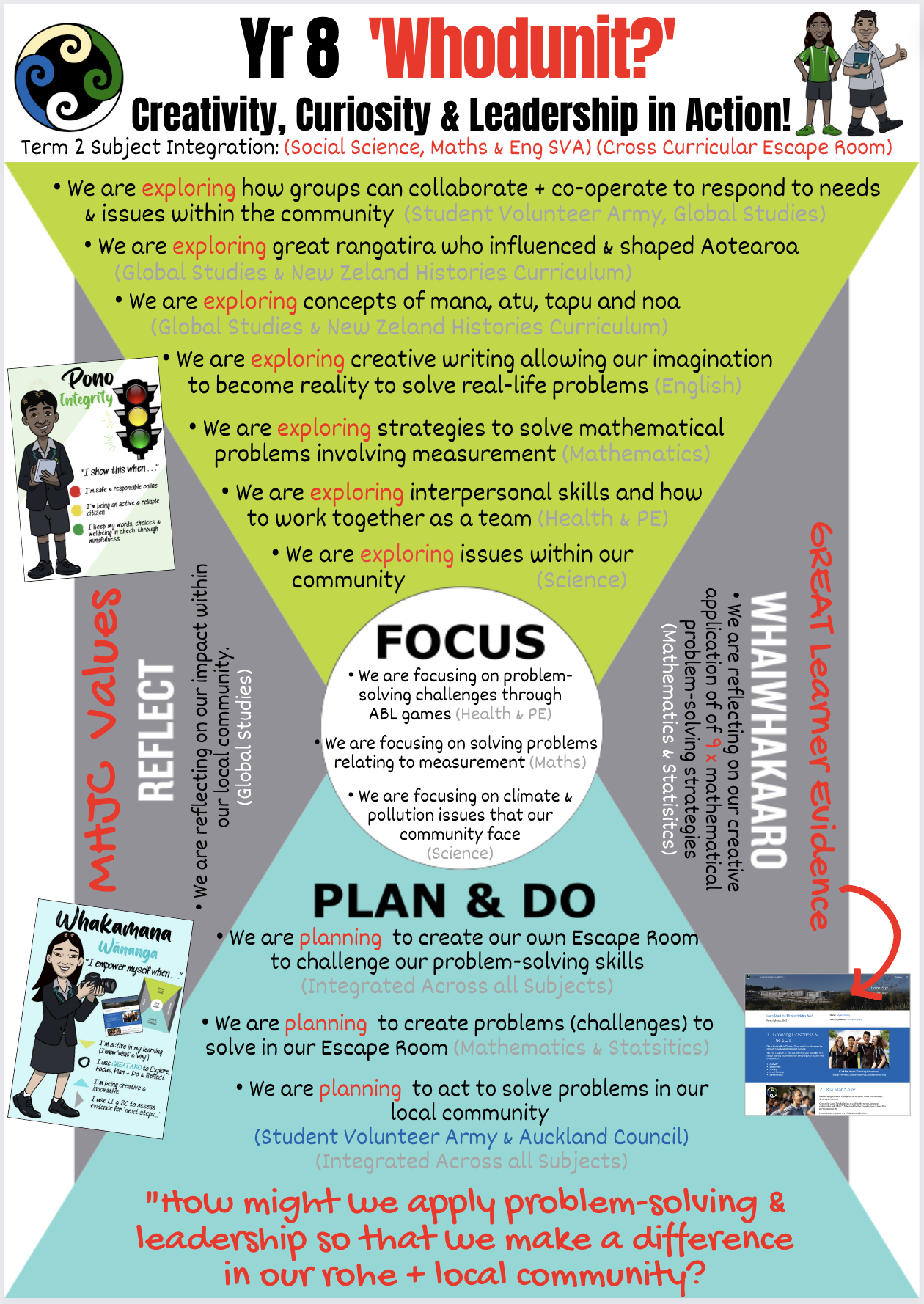
Kia ora! This week we are exploring the story of a great rangatira.
EXPLORE / TŪHURA learning intentions:
- We are EXPLORING people’s values, viewpoints, and perspectives, including my own
- We are EXPLORING how language and messaging can be used to inform, to misinform, and to position people alongside particular values and perspectives.
- We are EXPLORING relationships between events and identify continuity or changes in relationships.
- We are EXPLORING people’s actions in the past based on historical evidence and taking account of the attitudes and values of the times,
the challenges people faced, and the information available to them.
Authentic Outcomes: ‘Escape Room Challenge’
Theme: Resilience/empowerment/perseverance
Whakatauki: "I orea te tuatara ka patu ki waho."
Metaphorical: A problem is solved by continuing to find solutions
Literal: This whakatauki refers to the need for creative thinking, adaptability and perseverance. In order to solve a problem you need to have all of these.
Paearu Angitu (Success Criteria): I can...
• Locate information in a text
• Define key terms
• Examine values, viewpoints, and perspectivesHei Mahi (Activities):
2. In pairs, read the journal article: 'Eruera Maihi Patuone: The Story of a Great Rangatirau' attached as a pdf, below.
1. Eruera Maihi Patuone lived to be 108 (some say he was 112). Over his long life, he would witness enormous change. Patuone was a boy when Captain Cook first arrived, and he was one of the first rangatira to sign Te Tiriti o Waitangi. As a warrior, he fought with both traditional weapons and muskets. Later in life, he became a peacemaker. Like his cousin Hongi Hika, Patuone was a descendant of Rāhiri, who in turn descended from Kupe.
3. Discuss the Key Terms: ancestral wisdom, biography, Captain Cook, heritage, leadership, Musket Wars, New Zealand Wars, Northern War, power, rangatira, rangatiratanga.
4. In exercise books, write the short date, heading and full answers to a). Quick Find, b). Reading between the lines, and c). '50 Words'.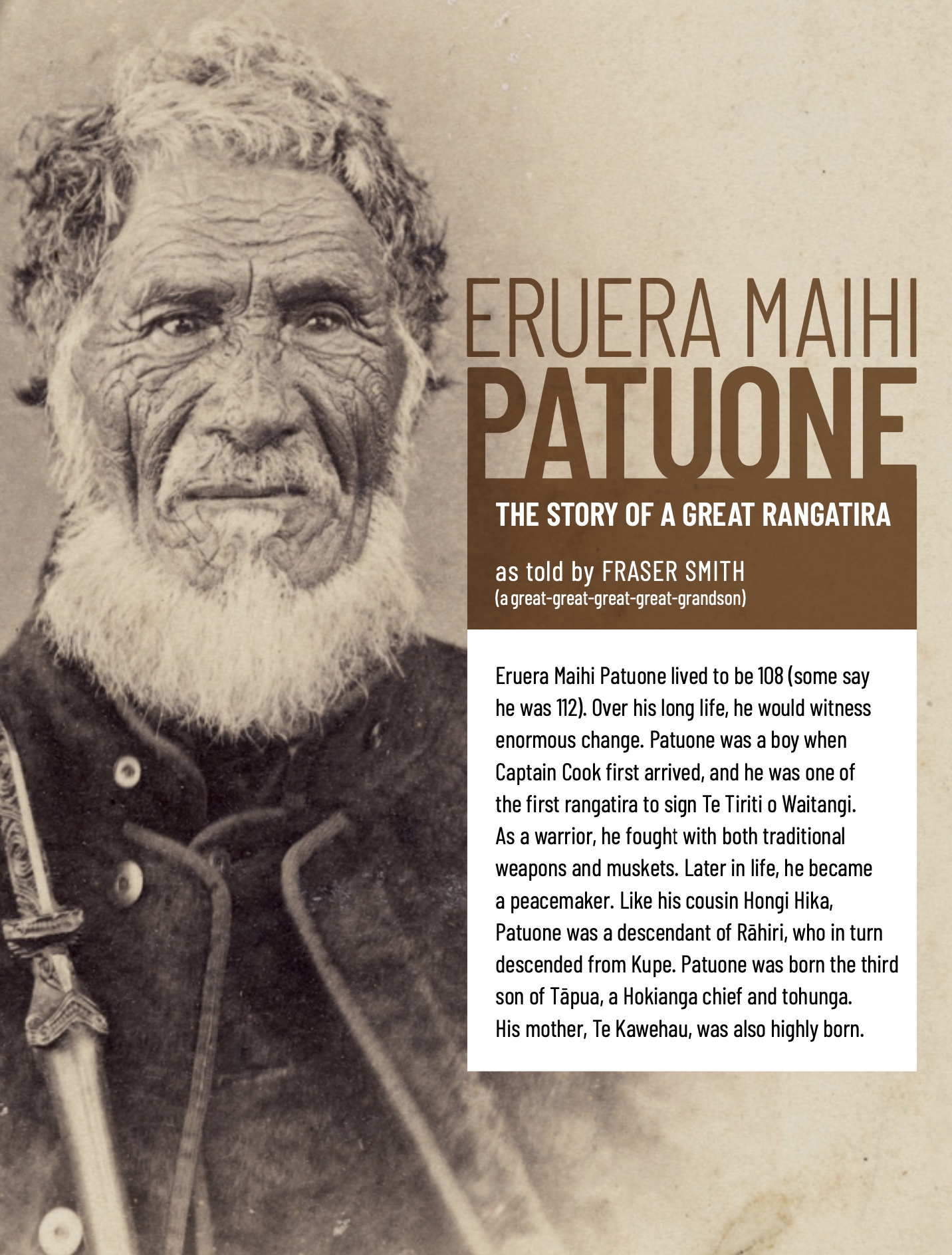

-
Kia ora! This week we are exploring the story of one of the first Maori suffragists, Meri Te Tai Mangakahia. Meri Te Tai made an enormous contribution to advancing women's equality in Aotearoa through the women's suffrage movement, and more. Well ahead of her time, Meri Te Tai Mangakahia wanted more than the right to vote, she wanted women represented in Parliament to be part of the decision-making.
EXPLORE / TŪHURA learning intentions:
- We are EXPLORING people’s values, viewpoints, and perspectives, including my own
- We are EXPLORING how language and messaging can be used to inform, to misinform, and to position people alongside particular values and perspectives.
- We are EXPLORING relationships between events and identify continuity or changes in relationships.
- We are EXPLORING people’s actions in the past based on historical evidence and taking account of the attitudes and values of the times,
the challenges people faced, and the information available to them.
Authentic Outcomes: ‘Escape Room Challenge’
Theme: Resilience/empowerment/perseverance
Whakatauki: "I orea te tuatara ka patu ki waho."
Metaphorical: A problem is solved by continuing to find solutions
Literal: This whakatauki refers to the need for creative thinking, adaptability and perseverance. In order to solve a problem you need to have all of these.
Paearu Angitu (Success Criteria): I can...
• Locate information in a text
• Define key terms
• Examine values, viewpoints, and perspectives
• Construct a timeline to display a mana-enhancing event/s (leadership, change & economic relationships)Hei Mahi (Activities):
a). Words from Meri Te Tai Mangakāhia: Māori Suffragist
1. Complete Term 2, Week 2's General Knowledge Quiz.
2. Read the two short extracts below on Meri Te Tai Mangakahia one of New Zealand's first Maori suffragists.
b). Kia Kaha profile - Meri Te Tai Mangakāhia
3. Complete the following Cloze learning activity about Meri Te Tai Mangakahia on Google Classroom by inserting the appropriate key word from the word bank onto the document (Google Classroom).
4. Craft a timeline of Meri Te Tai Mangakahia's life and achievements on Canva. The Te Ara Encyclopaedia will prove to be a useful start to your research of key dates & events: Te Ara - Encyclopaedia of NZ - Meri Te Tai Mangakāhia5. Special Guests: Listen to Meri Te Tai Mangakahia's great grand niece Emma Frost (radio interview) with descendants Jeremy Adams & Daymon Adams. Discuss values, viewpoints, and perspectives of land loss, and Māori women’s ownership and control of land was one reason why they needed to take part in discussion, decision-making and leadership. Discuss how people’s actions in the past based on historical evidence and taking account of the attitudes and values of the times, the challenges people faced, and the information available to them and how language and messaging can be used to inform, to misinform, and to position people alongside particular values and perspectives.
Revisit your timeline to ensure your have captured Meri Te Tai Mangakahia's values, viewpoints, challenges and perspectives.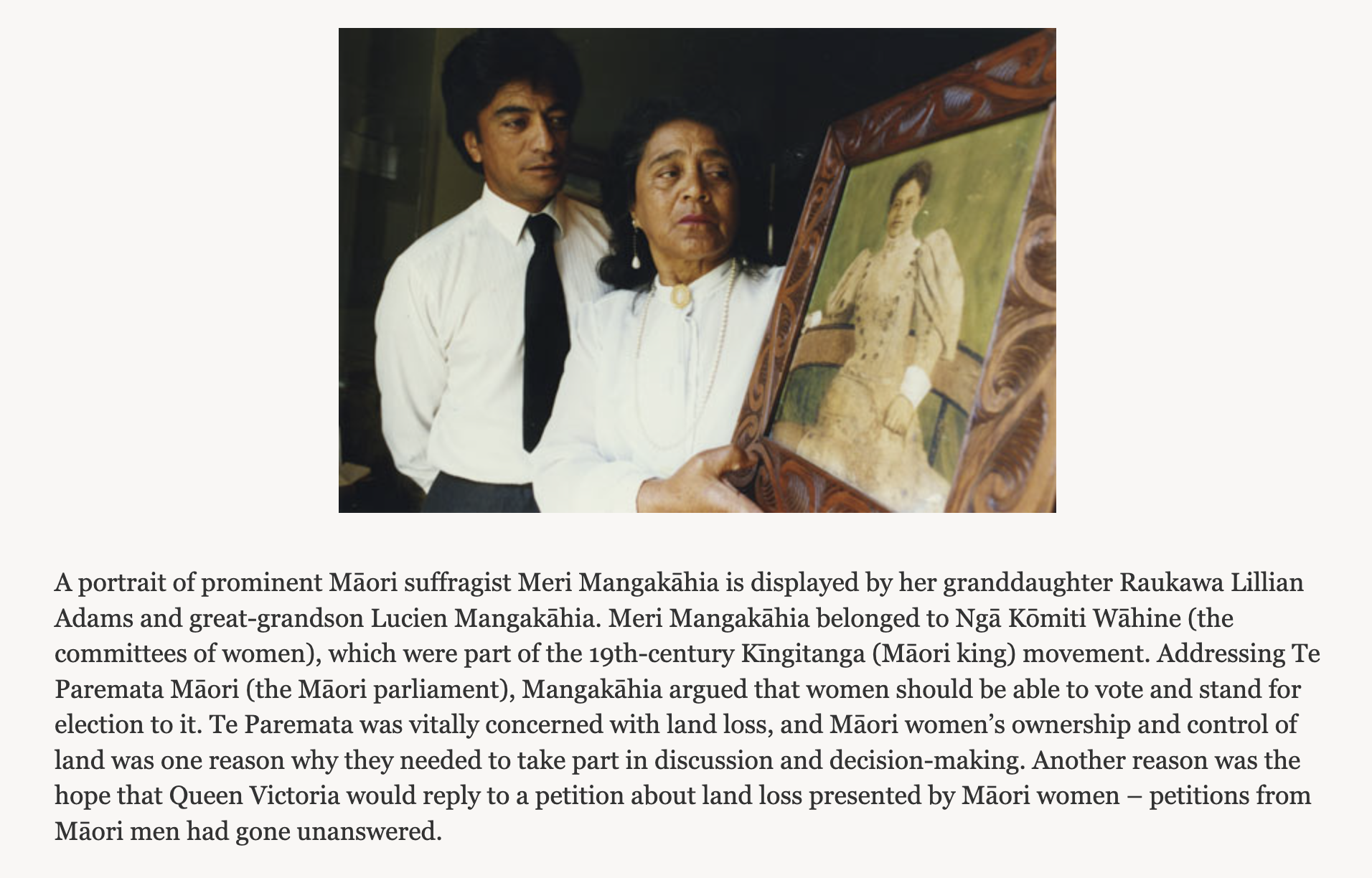

-
Kia ora! This week we are exploring the story of Hakaraia. He was once the most prominent Māori leader in the Bay of Plenty.
EXPLORE / TŪHURA learning intentions:
- We are EXPLORING people’s values, viewpoints, and perspectives, including my own
- We are EXPLORING how language and messaging can be used to inform, to misinform, and to position people alongside particular values and perspectives.
- We are EXPLORING relationships between events and identify continuity or changes in relationships.
- We are EXPLORING people’s actions in the past based on historical evidence and taking account of the attitudes and values of the times,
the challenges people faced, and the information available to them.
Authentic Outcomes: ‘Escape Room Challenge’
Theme: Resilience/empowerment/perseverance
Whakatauki: "I orea te tuatara ka patu ki waho."
Metaphorical: A problem is solved by continuing to find solutions
Literal: This whakatauki refers to the need for creative thinking, adaptability and perseverance. In order to solve a problem you need to have all of these.
Paearu Angitu (Success Criteria): I can...
• Locate information in a text
• Define key terms
• Examine values, viewpoints, and perspectives
• Construct a timeline to display a mana-enhancing event/s (leadership, change & economic relationships)
• Summarise key ideasHei Mahi (Activities):
1. Complete Term 2, Week 3's General Knowledge Quiz.
2. Read the journal article: 'Hakaraia: Warrior Peacemaker' attached as a pdf, below.
3. In exercise books, write the short date, heading and full answers.
4. Participate in class marking, with the Teacher. -
EXPLORE / TŪHURA learning intentions:
- We are EXPLORING people’s values, viewpoints, and perspectives, including my own
- We are EXPLORING how language and messaging can be used to inform, to misinform, and to position people alongside particular values and perspectives.
- We are EXPLORING relationships between events and identify continuity or changes in relationships.
- We are EXPLORING people’s actions in the past based on historical evidence and taking account of the attitudes and values of the times,
the challenges people faced, and the information available to them.
Authentic Outcomes: ‘Escape Room Challenge’
Theme: Resilience/empowerment/perseverance
Whakatauki: "I orea te tuatara ka patu ki waho."
Metaphorical: A problem is solved by continuing to find solutions
Literal: This whakatauki refers to the need for creative thinking, adaptability and perseverance. In order to solve a problem you need to have all of these.
Paearu Angitu (Success Criteria): I can...
• Locate information in a text
• Define key terms
• Examine values, viewpoints, and perspectives
• Construct a timeline to display a mana-enhancing event/s (leadership, change & economic relationships)
• Summarise key ideasHei Mahi (Activities):
This week, our focus is on exploring and identifying the needs and issues within our community. We will also consider how we, as a group, can respond to these needs.
1. Complete Term 2, Week 4's General Knowledge Quiz.
2. Classroom discussion.
3. Think about some of the environmental problems we are facing in our local community and at MHJC.
4. Create a reflective document (Google Docs/Google Sheets), including the following points:
a. 3 environmental issues world/New Zealand is facing. Read this article for more information : https://earth.org/the-biggest-environmental-problems-of-our-lifetime/
b. Environmental issue local community is facing (MHJC and surrounding areas).
c. What we (as a group) and I can do to address and resolve/reduce this issue. Suggest 3-5 suggestions.
d. Complete 'Fish Bone diagram'.
5. Submit your document on Google Classroom.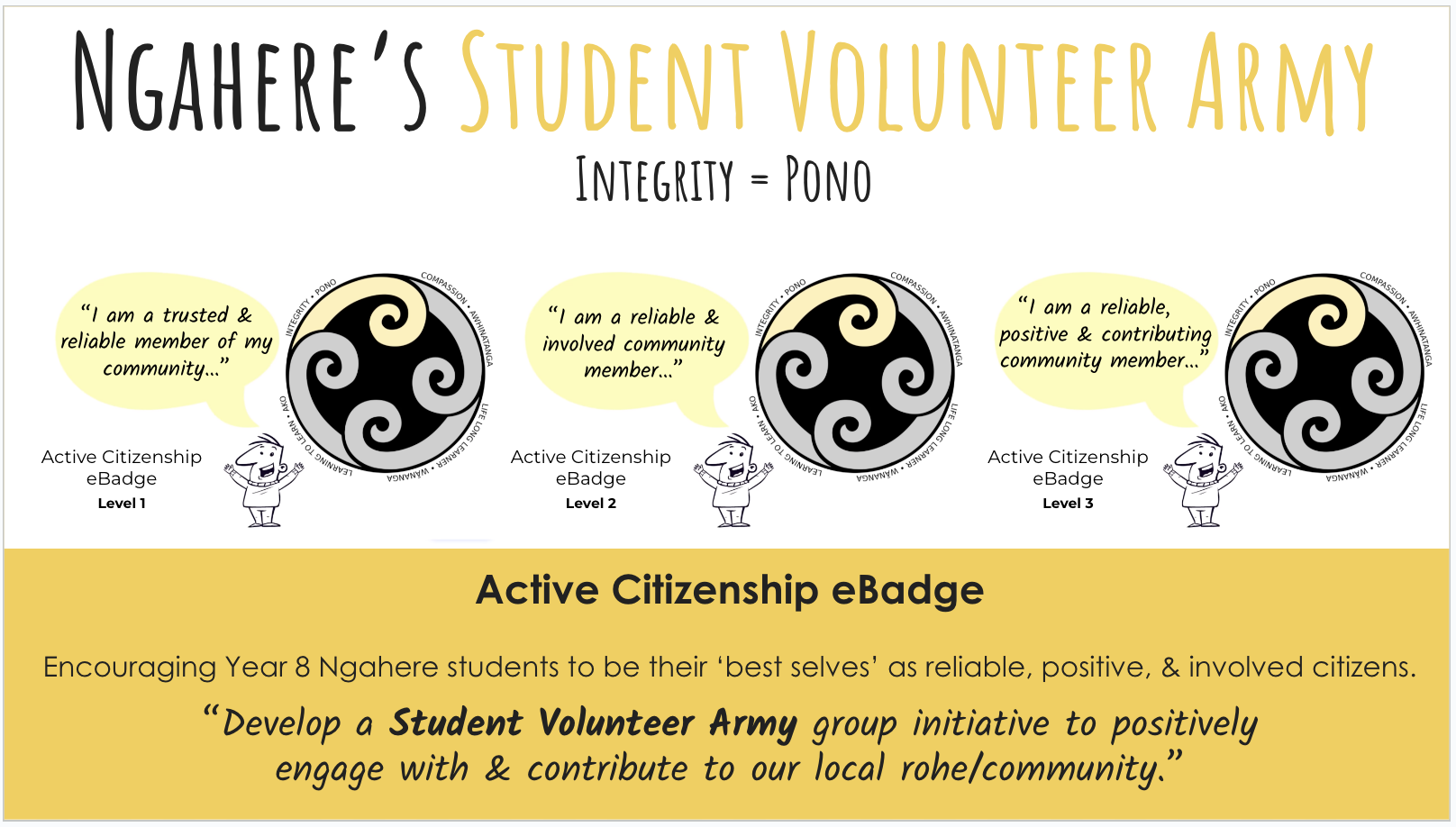
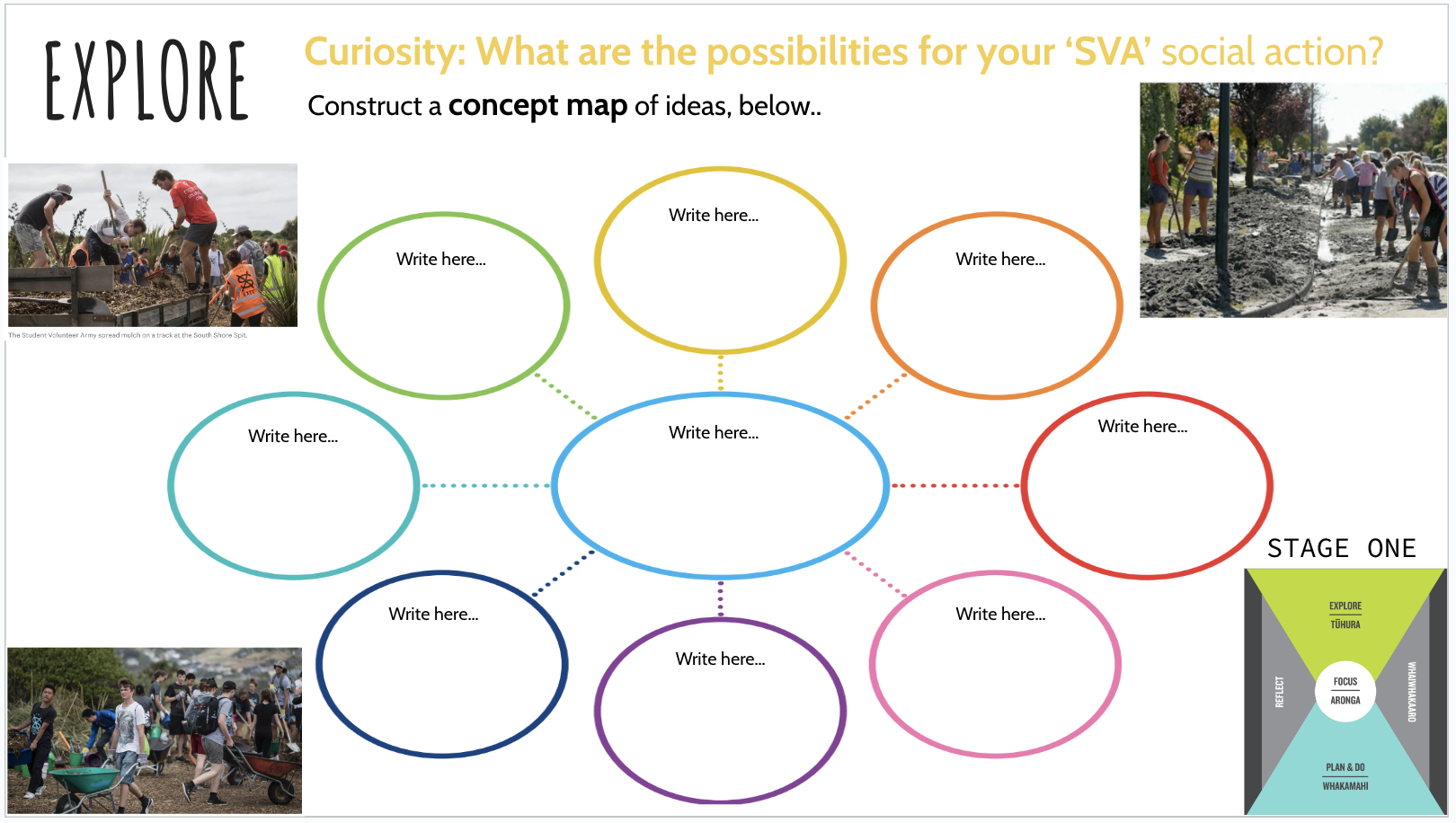
-
EXPLORE / TŪHURA learning intentions:
- We are EXPLORING people’s values, viewpoints, and perspectives, including my own
- We are EXPLORING how language and messaging can be used to inform, to misinform, and to position people alongside particular values and perspectives.
- We are EXPLORING relationships between events and identify continuity or changes in relationships.
- We are EXPLORING people’s actions in the past based on historical evidence and taking account of the attitudes and values of the times,
the challenges people faced, and the information available to them.
Authentic Outcomes: ‘Escape Room Challenge’
Theme: Resilience/empowerment/perseverance
Whakatauki: "I orea te tuatara ka patu ki waho."
Metaphorical: A problem is solved by continuing to find solutions
Literal: This whakatauki refers to the need for creative thinking, adaptability and perseverance. In order to solve a problem you need to have all of these.
Paearu Angitu (Success Criteria): I can...
• Locate information in a text
• Define key terms
• Examine values, viewpoints, and perspectives
• Work on different thinking and learning strategies.
• Summarise key ideasHei Mahi (Activities):
This week, we are going to explore the Student Volunteer Army (SVA). I will share the information about this initiative, and then we will start preparing for our army and the actions we will execute for our community. While working on this activity, you will be able to obtain evidence for your ‘Great Learner Graduate Profile’ and a Citizenship eBadge.
1. Complete Term 2, Week 5's General Knowledge Quiz.
2. Classroom discussion.
3. Complete the SVA document
5. Submit your document on Google Classroom.

-
EXPLORE / TŪHURA learning intentions:
- We are EXPLORING people’s values, viewpoints, and perspectives, including my own
- We are EXPLORING how language and messaging can be used to inform, to misinform, and to position people alongside particular values and perspectives.
- We are EXPLORING relationships between events and identify continuity or changes in relationships.
- We are EXPLORING people’s actions in the past based on historical evidence and taking account of the attitudes and values of the times,
the challenges people faced, and the information available to them.
Authentic Outcomes: ‘Escape Room Challenge’
Theme: Resilience/empowerment/perseverance
Whakatauki: "I orea te tuatara ka patu ki waho."
Metaphorical: A problem is solved by continuing to find solutions
Literal: This whakatauki refers to the need for creative thinking, adaptability and perseverance. In order to solve a problem you need to have all of these.
Paearu Angitu (Success Criteria): I can...
• Locate information in a text
• Define key terms
• Examine values, viewpoints, and perspectives
• Work on different thinking and learning strategies.
• Summarise key ideasHei Mahi (Activities):
This week, we will work on uploading the evidence on holistic report and continue working on SVA.
Session 1: Upload evidence on your site.
1. Complete Term 2, Week 6's General Knowledge Quiz.
Session 2: Student Volunteer Army - Plan & Do.
2. Classroom discussion.
3. Take a screenshot of all three strategies and create one document.
4. Upload the document and complete writing about your evidence.

-
EXPLORE / TŪHURA learning intentions:
- We are EXPLORING people’s values, viewpoints, and perspectives, including my own
- We are EXPLORING how language and messaging can be used to inform, to misinform, and to position people alongside particular values and perspectives.
- We are EXPLORING relationships between events and identify continuity or changes in relationships.
- We are EXPLORING people’s actions in the past based on historical evidence and taking account of the attitudes and values of the times,
the challenges people faced, and the information available to them.
Authentic Outcomes: ‘Escape Room Challenge’
Theme: Resilience/empowerment/perseverance
Whakatauki: "I orea te tuatara ka patu ki waho."
Metaphorical: A problem is solved by continuing to find solutions
Literal: This whakatauki refers to the need for creative thinking, adaptability and perseverance. In order to solve a problem you need to have all of these.
Paearu Angitu (Success Criteria): I can...
• Locate information in a text
• Define key terms
• Examine values, viewpoints, and perspectives
• Work on different thinking and learning strategies.
• Summarise key ideasHei Mahi (Activities):
This week, we will work on our first Global Assessment. I will explain it to you before we will start working on it. This assessment is due in Term 2, Week 9. Enjoy and do your best.
1. Complete Term 2, Week 7's General Knowledge Quiz.
2. Classroom discussion.
3. After teacher's explanation, start working on your assessment.
4. Read the 'Marking Rubric' carefully.
-
EXPLORE / TŪHURA learning intentions:
- We are EXPLORING people’s values, viewpoints, and perspectives, including my own
- We are EXPLORING how language and messaging can be used to inform, to misinform, and to position people alongside particular values and perspectives.
- We are EXPLORING relationships between events and identify continuity or changes in relationships.
- We are EXPLORING people’s actions in the past based on historical evidence and taking account of the attitudes and values of the times,
the challenges people faced, and the information available to them.
Authentic Outcomes: ‘Escape Room Challenge’
Theme: Resilience/empowerment/perseverance
Whakatauki: "I orea te tuatara ka patu ki waho."
Metaphorical: A problem is solved by continuing to find solutions
Literal: This whakatauki refers to the need for creative thinking, adaptability and perseverance. In order to solve a problem you need to have all of these.
Paearu Angitu (Success Criteria): I can...
• Locate information in a text
• Define key terms
• Examine values, viewpoints, and perspectives
• Work on different thinking and learning strategies.
• Summarise key ideasHei Mahi (Activities):
This week, we will continue working on assessment. We will also explore the Aotearoa history timeline and mana in Māori history and society.
Session 1: Assessment and Learner evidence.
Sessions 2 & 3: Mana in Māori history & society.
1. Complete Term 2, Week 8's General Knowledge Quiz.
2. Classroom discussion.
3. After teacher's explanation, start working on the activity.
4. Read the 'Marking Rubric' carefully and check the assessment outcome before submitting.
-
-
Opened: Friday, 7 June 2024, 2:30 PMDue: Wednesday, 3 July 2024, 4:30 PM
-
-
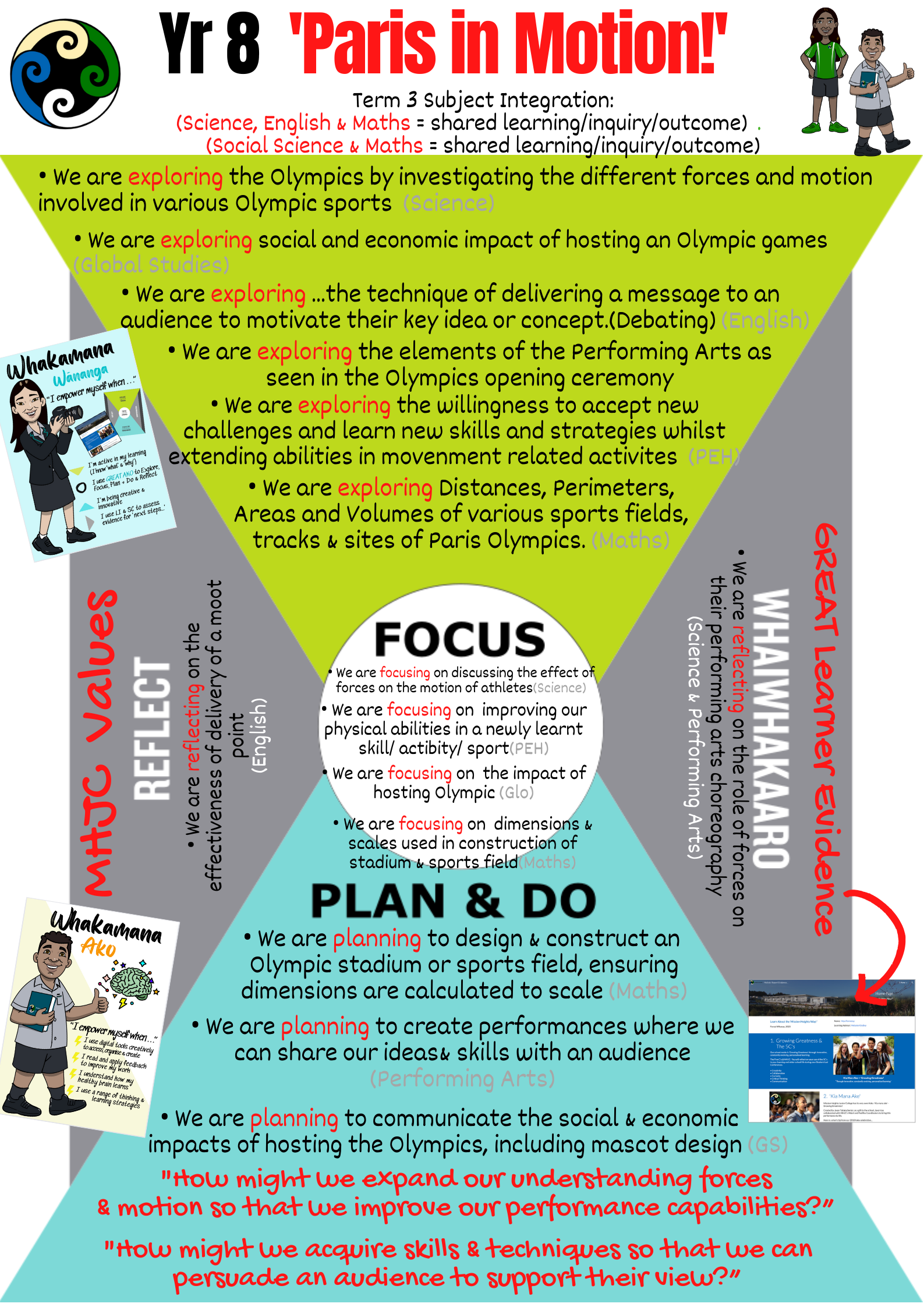
EXPLORE / TŪHURA learning intentions:
- We are EXPLORING the economic and social impact on host cities.
- We are EXPLORING opportunities and challenges for people, places, and environments.
- We are UNDERSTANDING that events have causes and effects.
- We are EXPLORING and learning to collect, analyse and use sources.
Authentic Outcomes: • To communicate the social & economic impacts of hosting an Olympics, including mascot design, etc.
Theme: Resilience/empowerment/
perseverance Whakatauki: "I orea te tuatara ka patu ki waho."
Metaphorical: A problem is solved by continuing to find solutions
Literal: This whakatauki refers to the need for creative thinking, adaptability and perseverance. In order to solve a problem you need to have all of these.
Paearu Angitu (Success Criteria): I can...
• Collect and analyse the sources.
• Identify and understand the economic and social impact of hosting a big event.
• Examine the cause and effect theory.
• Work on different thinking and learning strategies.
• Summarise key ideasHei Mahi (Activities):
Kia ora everyone,
Welcome back! This term, we will focus on the social and economic impacts of hosting the Olympics. We will understand this by focusing on the host cities and countries.
Session 1: Introduction to the Olympics, Comprehension Activity.
Session 2: Opening Ceremonies Journey - Create a chart of the host cities and years, Highlight the changes in opening ceremony & analyse the positives and negatives.
Session 3: Weekly quiz, continuing with the activity.
-

EXPLORE / TŪHURA learning intentions:
- We are EXPLORING the economic and social issues.
- We are EXPLORING the economic and social impact on host cities.
- We are EXPLORING opportunities and challenges for people, places, and environments.
- We are UNDERSTANDING that events have causes and effects.
- We are EXPLORING and learning to collect, analyse and use sources.
Authentic Outcomes: • To communicate the social & economic impacts of hosting an Olympics, including mascot design, etc.
Theme: Seek out your heart's desires.
Whakatauki:"Whāia te iti kahurangi, ki te tuohu koe me maunga teitei"
Metaphorical: Seek out your heart's desire, though if you have to relent, let it be to a lofty mountain.
Literal: This whakatauki (proverb) speaks to the importance of aiming high and being persistent and tenacious about reaching your goal/s.
Paearu Angitu (Success Criteria): I can...
• Collect and analyse the sources.
• Identify and understand the economic and social impact of hosting a big event.
• Examine the cause and effect theory.
• Work on different thinking and learning strategies.
• Summarise key ideasHei Mahi (Activities):
Kia ora everyone,
Welcome back! This term, we will focus on the social and economic impacts of hosting the Olympics. We will understand this by focusing on the host cities and countries.
Session 1: Introduction, Economic issues and economic benefits of hosting an event - The Olympics.
Session 2: Group activity - Economic issues and benefits - choose an Olympic host country from the past
Session 3: Weekly quiz - Presenting the slides.
-

EXPLORE / TŪHURA learning intentions:
- We are EXPLORING the economic and social issues.
- We are EXPLORING the economic and social impact on host cities.
- We are EXPLORING opportunities and challenges for people, places, and environments.
- We are UNDERSTANDING that events have causes and effects.
- We are EXPLORING and learning to collect, analyse and use sources.
Authentic Outcomes: • To communicate the social & economic impacts of hosting an Olympics, including mascot design, etc.
Theme: Seek out your heart's desires.
Whakatauki:"Whāia te iti kahurangi, ki te tuohu koe me maunga teitei"
Metaphorical: Seek out your heart's desire, though if you have to relent, let it be to a lofty mountain.
Literal: This whakatauki (proverb) speaks to the importance of aiming high and being persistent and tenacious about reaching your goal/s.
Paearu Angitu (Success Criteria): I can...
• Collect and analyse the sources.
• Identify and understand the economic and social impact of hosting a big event.
• Examine the cause and effect theory.
• Work on different thinking and learning strategies.
• Summarise key ideasHei Mahi (Activities):
Kia ora everyone,
Welcome back! This term, we will focus on the social and economic impacts of hosting the Olympics. We will understand this by focusing on the host cities and countries.
Session 1: Presentation Time - Economic issues
Session 2:
Session 3: Weekly quiz
-

EXPLORE / TŪHURA learning intentions:
- We are EXPLORING the economic and social issues.
- We are EXPLORING the economic and social impact on host cities.
- We are EXPLORING opportunities and challenges for people, places, and environments.
- We are UNDERSTANDING that events have causes and effects.
- We are EXPLORING and learning to collect, analyse and use sources.
Authentic Outcomes: • To communicate the social & economic impacts of hosting an Olympics, including mascot design, etc.
Theme: Seek out your heart's desires.
Whakatauki:"Whāia te iti kahurangi, ki te tuohu koe me maunga teitei"
Metaphorical: Seek out your heart's desire, though if you have to relent, let it be to a lofty mountain.
Literal: This whakatauki (proverb) speaks to the importance of aiming high and being persistent and tenacious about reaching your goal/s.
Paearu Angitu (Success Criteria): I can...
• Collect and analyse the sources.
• Identify and understand the economic and social impact of hosting a big event.
• Examine the cause and effect theory.
• Work on different thinking and learning strategies.
• Summarise key ideasHei Mahi (Activities):
Kia ora everyone,
This term, we will focus on the social and economic impacts of hosting the Olympics. We will understand this by focusing on the host cities and countries.
Session 1: The Economic Impacts of Hosting the Olympic Games - Discussion and complete the task.
Session 2: Social Issues - Introduction and related task
Session 3: Weekly quiz & Social Impacts of Hosting the Olympic Games
-

EXPLORE / TŪHURA learning intentions:
- We are EXPLORING the economic and social issues.
- We are EXPLORING the economic and social impact on host cities.
- We are EXPLORING opportunities and challenges for people, places, and environments.
- We are UNDERSTANDING that events have causes and effects.
- We are EXPLORING and learning to collect, analyse and use sources.
Authentic Outcomes: • To communicate the social & economic impacts of hosting an Olympics, including mascot design, etc.
Theme: Seek out your heart's desires.
Whakatauki:"Whāia te iti kahurangi, ki te tuohu koe me maunga teitei"
Metaphorical: Seek out your heart's desire, though if you have to relent, let it be to a lofty mountain.
Literal: This whakatauki (proverb) speaks to the importance of aiming high and being persistent and tenacious about reaching your goal/s.
Paearu Angitu (Success Criteria): I can...
• Collect and analyse the sources.
• Identify and understand the economic and social impact of hosting a big event.
• Examine the cause and effect theory.
• Work on different thinking and learning strategies.
• Summarise key ideasHei Mahi (Activities):
Kia ora everyone,
This term, we will focus on the social and economic impacts of hosting the Olympics. We will understand this by focusing on the host cities and countries.
Session 1: Presentation of the posters - Social impacts of hosting the Olympic Games.
Session 2: Learner Evidence.
Session 3: Weekly quiz & Introduction - Assessment 2.
-

EXPLORE / TŪHURA learning intentions:
- We are EXPLORING the economic and social issues.
- We are EXPLORING the economic and social impact on host cities.
- We are EXPLORING opportunities and challenges for people, places, and environments.
- We are UNDERSTANDING that events have causes and effects.
- We are EXPLORING and learning to collect, analyse and use sources.
Authentic Outcomes: • To communicate the social & economic impacts of hosting an Olympics, including mascot design, etc.
Theme: Seek out your heart's desires.
Whakatauki:"Whāia te iti kahurangi, ki te tuohu koe me maunga teitei"
Metaphorical: Seek out your heart's desire, though if you have to relent, let it be to a lofty mountain.
Literal: This whakatauki (proverb) speaks to the importance of aiming high and being persistent and tenacious about reaching your goal/s.
Paearu Angitu (Success Criteria): I can...
• Collect and analyse the sources.
• Identify and understand the economic and social impact of hosting a big event.
• Examine the cause and effect theory.
• Work on different thinking and learning strategies.
• Summarise key ideasHei Mahi (Activities):
Kia ora everyone,
This week, we will focus on working on our assessment.
Session 1: Assessment 2
Session 2: Learner Evidence & Assessment 2
Session 3: Weekly quiz & Assessment 2.
-
-
Opened: Friday, 23 August 2024, 11:00 AMDue: Friday, 13 September 2024, 4:30 PM
-
-

EXPLORE / TŪHURA learning intentions:
- We are EXPLORING the economic and social issues.
- We are EXPLORING the economic and social impact on host cities.
- We are EXPLORING opportunities and challenges for people, places, and environments.
- We are UNDERSTANDING that events have causes and effects.
- We are EXPLORING and learning to collect, analyse and use sources.
Authentic Outcomes: • To communicate the social & economic impacts of hosting an Olympics, including mascot design, etc.
Theme: Seek out your heart's desires.
Whakatauki:"Whāia te iti kahurangi, ki te tuohu koe me maunga teitei"
Metaphorical: Seek out your heart's desire, though if you have to relent, let it be to a lofty mountain.
Literal: This whakatauki (proverb) speaks to the importance of aiming high and being persistent and tenacious about reaching your goal/s.
Paearu Angitu (Success Criteria): I can...
• Collect and analyse the sources.
• Identify and understand the economic and social impact of hosting a big event.
• Examine the cause and effect theory.
• Work on different thinking and learning strategies.
• Summarise key ideasHei Mahi (Activities):
Kia ora everyone,
This week, we will focus on working on our assessment.
Session 1: Assessment 2
Session 2: Learner Evidence & Assessment 2
Session 3: Weekly quiz & Assessment 2 - Submission
-
Opened: Friday, 23 August 2024, 11:00 AMDue: Friday, 13 September 2024, 4:30 PM
-

EXPLORE / TŪHURA learning intentions:
- We are EXPLORING the economic and social issues.
- We are EXPLORING the economic and social impact on host cities.
- We are EXPLORING opportunities and challenges for people, places, and environments.
- We are UNDERSTANDING that events have causes and effects.
- We are EXPLORING and learning to collect, analyse and use sources.
Authentic Outcomes: • To communicate the social & economic impacts of hosting an Olympics, including mascot design, etc.
Theme: Seek out your heart's desires.
Whakatauki:"Whāia te iti kahurangi, ki te tuohu koe me maunga teitei"
Metaphorical: Seek out your heart's desire, though if you have to relent, let it be to a lofty mountain.
Literal: This whakatauki (proverb) speaks to the importance of aiming high and being persistent and tenacious about reaching your goal/s.
Paearu Angitu (Success Criteria): I can...
• Collect and analyse the sources.
• Identify and understand the economic and social impact of hosting a big event.
• Examine the cause and effect theory.
• Work on different thinking and learning strategies.
• Summarise key ideasHei Mahi (Activities):
Kia ora everyone,
This week, we will focus on working on our assessment.
Session 1: History of the Olympics
Session 2: Pierre De Coubertin
Session 3: Weekly quiz & Pictograms - Olympic Sports
-

EXPLORE / TŪHURA learning intentions:
- We are EXPLORING the economic and social issues.
- We are EXPLORING the economic and social impact on host cities.
- We are EXPLORING opportunities and challenges for people, places, and environments.
- We are UNDERSTANDING that events have causes and effects.
- We are EXPLORING and learning to collect, analyse and use sources.
Authentic Outcomes: • To communicate the social & economic impacts of hosting an Olympics, including mascot design, etc.
Theme: Seek out your heart's desires.
Whakatauki:"Whāia te iti kahurangi, ki te tuohu koe me maunga teitei"
Metaphorical: Seek out your heart's desire, though if you have to relent, let it be to a lofty mountain.
Literal: This whakatauki (proverb) speaks to the importance of aiming high and being persistent and tenacious about reaching your goal/s.
Paearu Angitu (Success Criteria): I can...
• Collect and analyse the sources.
• Identify and understand the economic and social impact of hosting a big event.
• Examine the cause and effect theory.
• Work on different thinking and learning strategies.
• Summarise key ideasHei Mahi (Activities):
Session 1: Around the world - Map Task
Link: World Map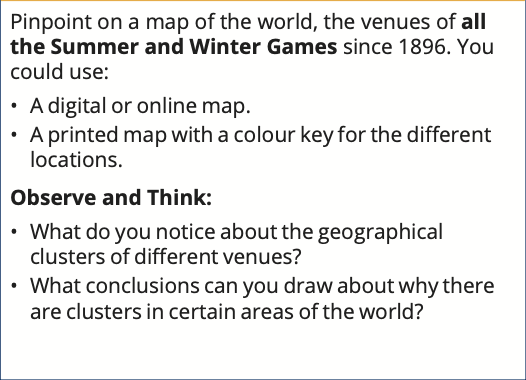
Session 2:
Session 3: Weekly & Kahoot Quiz
-
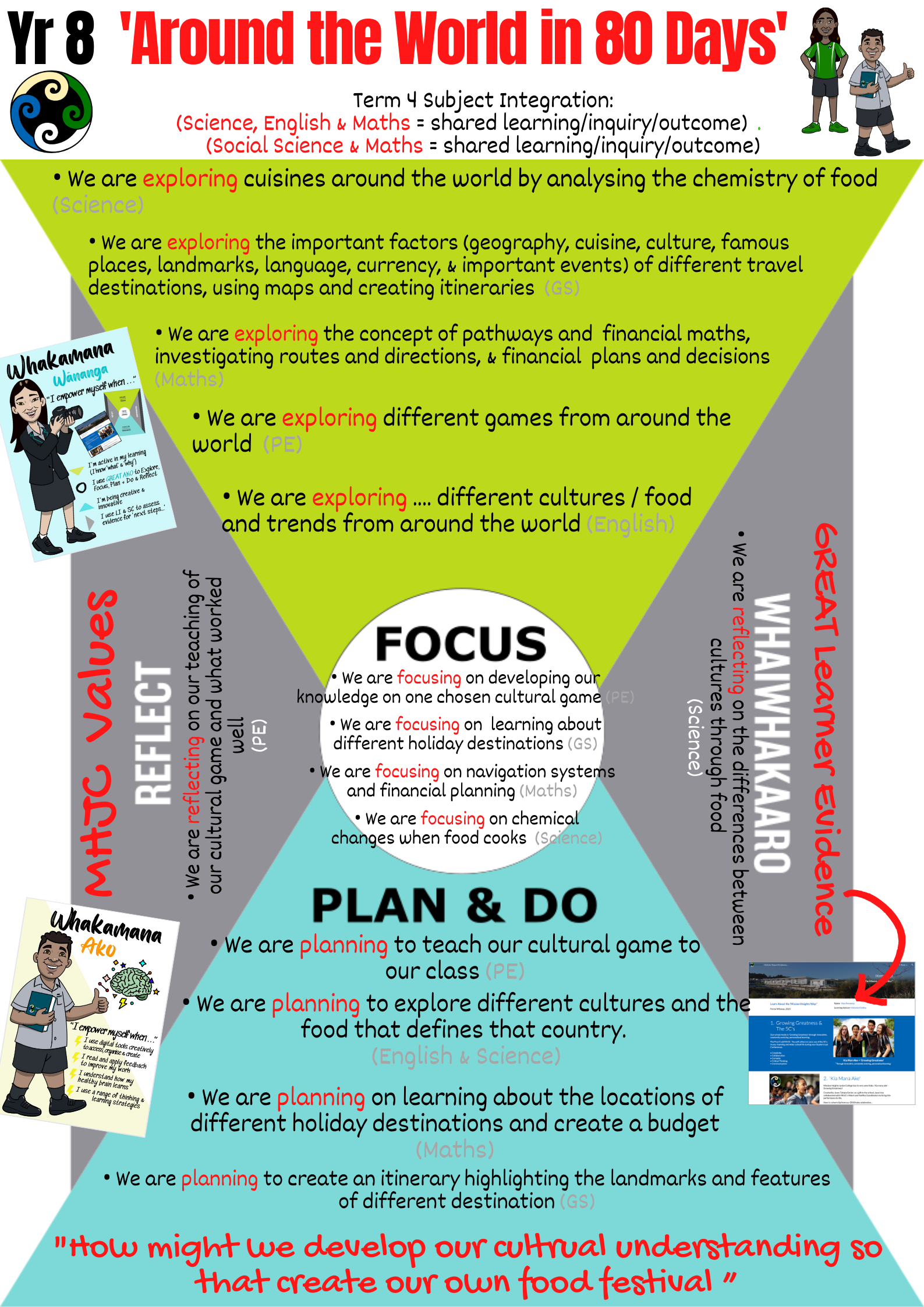
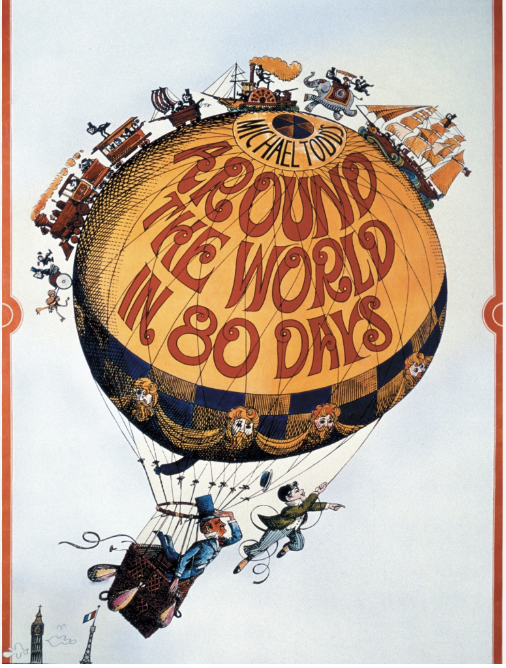
EXPLORE / TŪHURA learning intentions:
- We are EXPLORING important factors (geography, cuisine, culture, famous places, landmarks, language, currency, & important events) of different travel destinations.
- We are EXPLORING the legal documents needed for travelling other countries.
- We are LEARNING to create the map using FACKTS
• To design & construct an Olympic stadium or sports field, ensuring dimensions are calculated to scale.
Theme: Resilience/empowerment/perseverance
Whakatauki: "I orea te tuatara ka patu ki waho."
Metaphorical: A problem is solved by continuing to find solutions
Literal: This whakatauki refers to the need for creative thinking, adaptability and perseverance. In order to solve a problem you need to have all of these.Success Criteria: I can...
- use maps to highlight different destinations and landmarks
- create itineraries
- fill forms and complete legal procedures as required by different countries
- analyse the information and create a google site showing different travel destinations
- synthesise the information to create a blog.
Class Activities:
Session 1: Why do we need a passport?
Session 2: Create a passport.
Session 3: Weekly quiz -


EXPLORE / TŪHURA learning intentions:
- We are EXPLORING important factors (geography, cuisine, culture, famous places, landmarks, language, currency, & important events) of different travel destinations.
- We are EXPLORING the legal documents needed for travelling other countries.
- We are LEARNING to create the map using FACKTS
• To design a google site showcasing various travel destinations.
Theme: Resilience/empowerment/perseverance
Whakatauki: "I orea te tuatara ka patu ki waho."
Metaphorical: A problem is solved by continuing to find solutions
Literal: This whakatauki refers to the need for creative thinking, adaptability and perseverance. In order to solve a problem you need to have all of these.Success Criteria: I can...
- use maps to highlight different destinations and landmarks
- create itineraries
- fill forms and complete legal procedures as required by different countries
- analyse the information and create a google site showing different travel destinations
- synthesise the information to create a blog.
Class Activities:
Session 1: Tourism - Global Issues & Continue Part 2 (Around the world in 80 days)
Session 2: Tourism in the past & Continue Part 2 (Around the world in 80 days)
Session 3: Weekly quiz - Continue Part 3 - Google site -


EXPLORE / TŪHURA learning intentions:
- We are EXPLORING important factors (geography, cuisine, culture, famous places, landmarks, language, currency, & important events) of different travel destinations.
- We are EXPLORING the legal documents needed for travelling other countries.
- We are LEARNING to create the map using FACKTS
• To design a google site showcasing various travel destinations.
Theme: Resilience/empowerment/perseverance
Whakatauki: "I orea te tuatara ka patu ki waho."
Metaphorical: A problem is solved by continuing to find solutions
Literal: This whakatauki refers to the need for creative thinking, adaptability and perseverance. In order to solve a problem you need to have all of these.Success Criteria: I can...
- use maps to highlight different destinations and landmarks
- create itineraries
- fill forms and complete legal procedures as required by different countries
- analyse the information and create a google site showing different travel destinations
- synthesise the information to create a blog.
Class Activities:
Session 1: Marae Visit
Session 2: Weekly Quiz & Tourism in the past & Continue Part 2 (Around the world in 80 days)
Session 3: Athletics Day -


EXPLORE / TŪHURA learning intentions:
- We are EXPLORING important factors (geography, cuisine, culture, famous places, landmarks, language, currency, & important events) of different travel destinations.
- We are EXPLORING the legal documents needed for travelling other countries.
- We are LEARNING to create the map using FACKTS
• To design a google site showcasing various travel destinations.
Theme: Resilience/empowerment/perseverance
Whakatauki: "I orea te tuatara ka patu ki waho."
Metaphorical: A problem is solved by continuing to find solutions
Literal: This whakatauki refers to the need for creative thinking, adaptability and perseverance. In order to solve a problem you need to have all of these.Success Criteria: I can...
- use maps to highlight different destinations and landmarks
- create itineraries
- fill forms and complete legal procedures as required by different countries
- analyse the information and create a google site showing different travel destinations
- synthesise the information to create a blog.
Links
Class Activities:
Session 1: Create Itinerary - Activity
Session 2: Continue Part 2 (Around the world in 80 days Task)
Session 3: Weekly Quiz and Introduction to Part 3 (Around the world in 80 days Task) -


EXPLORE / TŪHURA learning intentions:
- We are EXPLORING important factors (geography, cuisine, culture, famous places, landmarks, language, currency, & important events) of different travel destinations.
- We are EXPLORING the legal documents needed for travelling other countries.
- We are LEARNING to create the map using FACKTS
• To design a google site showcasing various travel destinations.
Theme: Resilience/empowerment/perseverance
Whakatauki: "I orea te tuatara ka patu ki waho."
Metaphorical: A problem is solved by continuing to find solutions
Literal: This whakatauki refers to the need for creative thinking, adaptability and perseverance. In order to solve a problem you need to have all of these.Success Criteria: I can...
- use maps to highlight different destinations and landmarks
- create itineraries
- fill forms and complete legal procedures as required by different countries
- analyse the information and create a google site showing different travel destinations
- synthesise the information to create a blog.
Links
Class Activities:
Session 1: Longitude & Latitude - Activity
Session 2: Continue Part 3 (Around the world in 80 days Task)
Session 3: Weekly Quiz and Continue Part 3 (Around the world in 80 days Task) -


EXPLORE / TŪHURA learning intentions:
- We are EXPLORING important factors (geography, cuisine, culture, famous places, landmarks, language, currency, & important events) of different travel destinations.
- We are EXPLORING the legal documents needed for travelling other countries.
- We are LEARNING to create the map using FACKTS
• To design a google site showcasing various travel destinations.
Theme: Resilience/empowerment/perseverance
Whakatauki: "I orea te tuatara ka patu ki waho."
Metaphorical: A problem is solved by continuing to find solutions
Literal: This whakatauki refers to the need for creative thinking, adaptability and perseverance. In order to solve a problem you need to have all of these.Success Criteria: I can...
- use maps to highlight different destinations and landmarks
- create itineraries
- fill forms and complete legal procedures as required by different countries
- analyse the information and create a google site showing different travel destinations
- synthesise the information to create a blog.
Links
Class Activities:
Session 1: Coat of Arms - Introduction and Activity
Session 2: Coat of Arms - Continue
Session 3: Weekly Quiz and Continue Part 3 (Around the world in 80 days Task) -


EXPLORE / TŪHURA learning intentions:
- We are EXPLORING important factors (geography, cuisine, culture, famous places, landmarks, language, currency, & important events) of different travel destinations.
- We are EXPLORING the legal documents needed for travelling other countries.
- We are LEARNING to create the map using FACKTS
• To design a google site showcasing various travel destinations.
Theme: Resilience/empowerment/perseverance
Whakatauki: "I orea te tuatara ka patu ki waho."
Metaphorical: A problem is solved by continuing to find solutions
Literal: This whakatauki refers to the need for creative thinking, adaptability and perseverance. In order to solve a problem you need to have all of these.Success Criteria: I can...
- use maps to highlight different destinations and landmarks
- create itineraries
- fill forms and complete legal procedures as required by different countries
- analyse the information and create a google site showing different travel destinations
- synthesise the information to create a blog.
Links
Class Activities:
Session 1: Flags of Aotearoa New Zealand - Introduction and Activity
Session 2: Part 4 (Around the world in 80 days task)
Session 3: Weekly Quiz and Continue Part 4 (Around the world in 80 days Task) -


EXPLORE / TŪHURA learning intentions:
- We are EXPLORING important factors (geography, cuisine, culture, famous places, landmarks, language, currency, & important events) of different travel destinations.
- We are EXPLORING the legal documents needed for travelling other countries.
- We are LEARNING to create the map using FACKTS
• To design a google site showcasing various travel destinations.
Theme: Resilience/empowerment/perseverance
Whakatauki: "I orea te tuatara ka patu ki waho."
Metaphorical: A problem is solved by continuing to find solutions
Literal: This whakatauki refers to the need for creative thinking, adaptability and perseverance. In order to solve a problem you need to have all of these.Success Criteria: I can...
- use maps to highlight different destinations and landmarks
- create itineraries
- fill forms and complete legal procedures as required by different countries
- analyse the information and create a google site showing different travel destinations
- synthesise the information to create a blog.
Links
Class Activities:
Session 1: Around the World in 80 Days - Presentation
Session 2: Weekly Quiz and Presentation (Continue)
Session 3: Big Day Out -


EXPLORE / TŪHURA learning intentions:
- We are EXPLORING important factors (geography, cuisine, culture, famous places, landmarks, language, currency, & important events) of different travel destinations.
- We are EXPLORING the legal documents needed for travelling other countries.
- We are LEARNING to create the map using FACKTS
• To design a google site showcasing various travel destinations.
Theme: Resilience/empowerment/perseverance
Whakatauki: "I orea te tuatara ka patu ki waho."
Metaphorical: A problem is solved by continuing to find solutions
Literal: This whakatauki refers to the need for creative thinking, adaptability and perseverance. In order to solve a problem you need to have all of these.Success Criteria: I can...
- use maps to highlight different destinations and landmarks
- create itineraries
- fill forms and complete legal procedures as required by different countries
- analyse the information and create a google site showing different travel destinations
- synthesise the information to create a blog.
Links
Class Activities:
Session 1: Around the World in 80 Days - Presentation
Session 2: Presentation (Continue)
Session 3: Holiday

